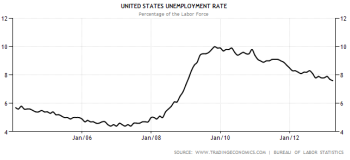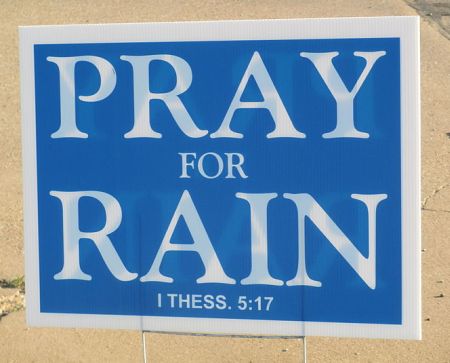This entry is part of a series. For a listing of all entries in the series, go to the Index. Unless otherwise noted, all Bible quotations are from the New Revised Standard Version (NRSV).
 Chapters 11 through 21 comprise the second half of the book of Judges. These chapters contain some stories that are more recognizable, such as Samson and Delilah.
Chapters 11 through 21 comprise the second half of the book of Judges. These chapters contain some stories that are more recognizable, such as Samson and Delilah.
The judges in these books display some rather questionable morality. The New Oxford Annotated Bible (NOAB) notes that much of that is to intentionally present the judges in a bad light, as a kind of precursor to coming books, laying the foundation to make the case that monarchy will be good for Israel. This may be the case, but there are still aspects of God's involvement in the stories that are troubling.
Judges, Chapter 11
I closed last week's review with the Israelites on the verge of war with the Ammonites, but without anyone to lead them. This chapter described the leader, Jephthah. He was the son of a prostitute. Once his half-brothers were old enough, they drove him away to keep their inheritances larger. Jephthah ended up in the land of Tob and became a leader of a group of outlaws. With the coming war, the Israelite leaders approached Jephthah and asked for him to lead the army. Jephthah agreed under the condition that he would be the head of Israel, not just the army, and the Israelite elders agreed to his condition.
Jephthah began by trying to negotiate with the Ammonites, claiming that the land had never belonged to them. Unfortunately, the negotiations didn't work, and the war came. Next came a very disturbing aspect of the story. Jephthah made an oath with the Lord, "If you will give the Ammonites into my hand, then whoever comes out of the doors of my house to meet me, when I return victorious from the Ammonites, shall be the Lord's, to be offered up by me as a burnt-offering." He was offering a human-sacrifice in exchange for victory! So, "the Lord gave them into his hand." Upon Jephthah return to his house, the first person out of the door to greet him was his daughter. But since he'd made an oath, it couldn't be broken. After giving her two months to wander the wilderness grieving for her fate, "she returned to her father, who did with her according to the vow he had made."
I know this story is supposedly to put Jephthah in a bad light, but God allowed it all to happen, and even kept his end of the oath that resulted in the daughter being sacrificed. He could have appeared like he did to Moses to stop the sacrifice, or even just let Jephthah fail.
Judges, Chapter 12
After the defeat of the Ammonites, the Israelites had some inter-tribal warfare. Jephthah and the men of Gilead fought against the Ephraimites. Jephthah and his men took a ford in the region, and killed any Emphraimites who tried to cross it. "Forty-two thousand of the Ephraimites fell at that time."
Jepthah was judge over Israel for six years before his death. This chapter closed with a list of the three judges who followed Jephthah.
Judges, Chapter 13
Chapter 13 introduced the story of Samson. It began in the same way as so many chapters of this book, "The Israelites again did what was evil in the sight of the Lord", so the Lord handed them over to the Philistines for 40 years. But then, the angel of the Lord came to visit the unnamed wife of Manoah, and told her that she was going to have a son. He instructed her to "drink no wine or strong drink, and eat nothing unclean, for the boy shall be a nazirite to God from birth to the day of his death." And if you recall the description of nazirites from Numbers, it meant that Samson was never to cut his hair.
The woman told her husband of the visit, who prayed to God for more guidance. So God sent the angel a second time, still going to visit the woman first, who had to go get her husband to be part of the conversation. After offering the angel food, the angel insisted that it be offered as a burnt offering, and "the angel of the Lord ascended in the flame of the altar while Manoah and his wife looked on."
There was one other interesting aspect from this chapter - the importance of names. When Manoah asked the angel for his name, the angel refused to give it to him.
Judges, Chapter 14
Chapter 14 contains a bit of an odd story. Once Samson was older, he decided he wanted a Philistine woman for a wife. His parents were troubled by this, but apparently, "this was from the Lord; for he was seeking a pretext to act against the Philistines."
One day, as Samson was walking near a vineyard by himself, he was attacked by a lion, and "The spirit of the Lord rushed on him, and he tore the lion apart with his bare hands as one might tear apart a kid." But he didn't tell anyone about it. Then he went on to meet a woman, and "After a while he returned to marry her". On that trip, he saw the body of the lion, which had become inhabited by bees. So, Samson took the honey from inside the carcass, eating some of it for himself, and taking some of it back to his parents. But he didn't tell anybody where the honey came from.
So, a feast was prepared for the wedding, and as was apparently the custom (per the NOAB), Samson posed a riddle to the guests. The stakes were "thirty linen garments and thirty festal garments". If they solved the riddle, Samson would owe them, but if they couldn't then they would owe Samson. But Samson's riddle wasn't a fair one. It was based on the events with the lion and the honey, not something that anybody else could figure out, "Out of the eater came something to eat. Out of the strong came something sweet."
The guests of course couldn't solve the riddle, so they convinced Samson's wife to coax the answer out of him. After "she nagged him" for seven days, he finally broke and told her the answer, which she passed on to the guests, who then won the bet. Samson was furious, "If you had not ploughed with my heifer, you would not have found out my riddle." And immediately following that, "the spirit of the Lord rushed on him, and he went down to Ashkelon. He killed thirty men of the town, took their spoil, and gave the festal garments to those who had explained the riddle." And with that, he stormed away from the town, so his wife was given to another man, thinking Samson was gone for good.
Just like Jephthah's story was supposed to make him look bad, the NOAB says that this was supposed to make Samson look bad. But he only killed all those townspeople after "the spirit of the Lord rushed on him". It was God who enabled the killing.
Judges, Chapter 15
A while later, Samson went back to visit his wife, only to find out that she'd been given to another man. And of course, he was furious. So, he attached some foxes tail to tail, put a torch "between each pair of tails", then lit the torches and let the foxes free. They ran through the fields of the Philistines, setting all their crops ablaze. When the Philistines learned Samson had done it in revenge, they went to Samson's wife and her father, and burned them. Samson went on a killing spree, striking down many Philistines before going off to live on his own.
In retaliation, the Philistines went to Judah and punished the people there, so that the people of Judah would deliver Samson. Samson allowed the people of Judah to bind him, so long as they weren't going to attack him themselves. As soon as he was delivered to the Philistines, he broke his bonds and attacked. This is where the infamous story of the jawbone takes place. Judah picked up "a fresh jawbone of a donkey", and killed a thousand Philistines with it.
After the fighting was over and Samson was parched with thirst, he called out to God to not let him die of thirst, "so God split open the hollow place that is at Lehi", providing Samson with water.
Judges, Chapter 16
Next came a short story involving Samson and a prostitute. While visiting a prostitute in Gaza, the people learned of his presence, and decided to attack him come first light. But Samson arose at midnight, and then in an image that's almost cartoonish, he "took hold of the doors of the city gate and the two posts, pulled them up, bar and all, put them on his shoulders, and carried them to the top of the hill that is in front of Hebron."
After that, Samson finally fell in love with Delilah. She was bribed by Philistine leaders to learn the secret of his strength, so she repeatedly tried to get him to admit it to her. On multiple occasions, he gave her a false answer, and that very night she would try to subdue him with whatever false answer he had given her, while Philistine soldiers lay in wait in the next room, only to learn she'd been fooled when he awoke and broke the bonds. You'd think that after waking up bound a few times, Samson would have become suspicious, but he eventually told Delilah the true source of his strength - his uncut hair. So that night, when he fell asleep with his head in her lap, she called in a man to cut his hair, and Samson lost his strength. The Philistines captured him and gouged out his eyes, after which they bound him and took him to Gaza. In Gaza, he was put to work grinding at the mill in the prison. But we were given a ray of hope - his hair had begun to grow again.
The Philistine leaders gathered for a celebration and to offer a sacrifice to their god, Dagon. They called out Samson from the prison to humiliate him by making him perform for them. Samson prayed to God one last time, asking God to "remember me and strengthen me only this once, O God, so that with this one act of revenge I may pay back the Philistines for my two eyes." With that, he pushed on the pillars between which he was standing, making the whole building collapse, killing everyone within it, "So those he killed at his death were more than those he had killed during his life."
In the last line of the chapter, we learn that Samson had judged Israel for 20 years.
Judges, Chapter 17
Chapter 17 introduces us to Micah, a man from the hill country of Ephraim. The chapter started with him admitting to his mother that he'd taken 1100 pieces of silver from her and returning it. In turn, she took a portion of that silver to make an idol, which she kept in Micah's house. In addition, "Micah had a shrine, and he made an ephod and teraphim" and then made his son a priest.
One day, a young Levite who had been living in Bethlehem in Judah left the town to strike out on his own. He met Micah, and Micah asked the young Levite to stay with him as a priest, and to be like a father to him.
Judges, Chapter 18
Now the Danites still hadn't been allotted their territory, so they sent five scouts out looking for a suitable location. They came upon Micah's house, and recognized the young Levite. They received his blessing on their quest before continuing on. Next, they came upon Laish. The description the Bible gave is a little unsettling in that it really illustrates the warlike nature of the Israelites, "they observed the people who were there living securely, after the manner of the Sidonians, quiet and unsuspecting, lacking nothing on earth, and possessing wealth."
So, the scouts returned to their tribe and gathered an army to conquer Laish. On the way, they went to the home of Micah, and convinced the young Levite to go with them, even stealing the idol, ephod, and teraphim. The young Levite tried to protest some, but they told him to "Keep quiet! Put your hand over your mouth..." A little way onward, Micah caught up to them and confronted them, but the Danites threatened Micah and he returned to his house empty handed.
In the end, the Danites conquered Laish, killing everyone in the city and taking the land for themselves, and putting up the idols in the city.
Judges, Chapter 19
Chapter 19 began a somewhat gruesome story. A Levite living in the hill country of Ephraim took a concubine from Bethlehem in Judah. One day, she became angry with him and returned to her father's house. After a few months, the man went to win her back. There was a bit of an odd side story, where the man kept trying to leave, but the girl's father kept giving him food and drink and convincing him to spend another night. But eventually, on the fifth day, they left.
They made their way to a town named Gibeah, and waited in the town square until an old man invited them to stay at his house. Then, the story became reminiscent of Sodom. The men of the town came to the house and demanded to have the man so that "we may have intercourse with him". And like in that other story, the men trapped inside the house tried to appease the men trapped outside the house by offering them "my virgin daughter and his concubine", but the men of the town still wanted the Levite. But here is where the story went its own way. Instead of a miraculous rescue by angels, the Levite pushed his concubine out the door. The men raped and abused the concubine. In the morning, she fell at the door of the house, and when the man tried to rouse her, he discovered that she had been killed.
So, he took her body, threw it on a donkey, and took it back to his home. Then "he cut her into twelve pieces, limb by limb, and sent her throughout all the territory of Israel." Along with the body parts, he sent a message to form a counsel, since nothing like that had ever before happened in Israel.
Judges, Chapter 20
The people of Israel gathered to decide what was to be done. They sent emissaries throughout the tribe of Benjamin, demanding the men who had committed the crime so that they could be put to death. The Benjaminites refused to hand them over, so both sides formed up armies for battle. The non-Benjaminite Israelites went to the Ark of the Covenant to ask God what to do, and God told them to go out to battle. Two days in a row, the Benjaminites inflicted major casualties on the rest of Israel. Both nights, the Israelites returned to the Ark, and both times God told them to go back out to battle. But on the second night, God gave the Israelites further instructions on their tactics. On the third day, the main body of Israel was finally victorious, and killed all of the Benjaminites, including the women and children, except for a small group of men who escaped.
Judges, Chapter 21
The Israelites had made a vow that none of their daughters would marry the Benjaminites. But now that there were no female Benjaminites left alive, they lamented the fact that one of the tribes of Israel would go extinct. So they took a roll, and realized that no one from Jabesh-gilead had been at Mizpah when the vow was made. So 12,000 soldiers were sent to Jabesh-gilead, and commanded to "put the inhabitants of Jabesh-gilead to the sword, including the women and the little ones". Only virgin girls were to be captured alive. These young girls were taken to the band of Benjaminite survivors, so that they could have wives. But their weren't enough girls to go around.
The Israelites found a loophole. The men from Benjamin who still didn't have wives were to go to Shiloh while they were having a festival, and hide in wait in the vineyards. When unsuspecting girls came by, the Benjaminites would kidnap them. That way, the girls weren't captured in battle, which apparently would have caused more war. But the Israelites also had broken their vow by giving their daughters to the Benjaminites. So, the Benjaminites kidnapped enough girls to keep their tribe going.
The chapter closed with a line that was repeated numerous times throughout this book,"In those days there was no king in Israel; all the people did what was right in their own eyes."
---
This book really paints a bad picture of Israelite morality in those days. Granted, as I wrote above, some people see this as laying the foundation to support monarchy in later books, by showing that the people need a strong leader to keep from behaving badly. And for the most part, the communication with Yahweh in this book wasn't as direct as it had been with Moses and Joshua. But God still played a troubling role in many of these stories, giving strength to the people that committed atrocities, or letting battles rage for days before divinely stepping in to give one side the victory.
Like I wrote last week, it's easy to see how this book could be based in reality. It doesn't present a completely idealized image of Israel. There's a lot of inter-tribal warfare and different gods being worshiped. It's almost as if these stories are descended from the early days of Judaism, when the people began to shift to the worship of one god instead of many, and when they began to come together as one nation. Though that's just the way I'm reading this book, and it's also possible that it is an 'idealized' view of Israel, but a rather dystopian view to stress the shortcomings of a society without a monarch.
New Revised Standard Version Bible, copyright 1989, Division of Christian Education of the National Council of the Churches of Christ in the United States of America. Used by permission. All rights reserved.
 You know those types of people who doubt evolution and are always trying to get alternative viewpoints put into schools? They'll say to Teach the controversy, or to examine "all sides of scientific evidence". Well, in my recent research into the manufactured CSCOPE controversy, I came across this page:
You know those types of people who doubt evolution and are always trying to get alternative viewpoints put into schools? They'll say to Teach the controversy, or to examine "all sides of scientific evidence". Well, in my recent research into the manufactured CSCOPE controversy, I came across this page:

 Ruth is by far the shortest of the Biblical books that I've read so far - just 4 chapters long. It's also the shortest of the Historical Books, but not the shortest book of the Bible, or even of the Old Testament.
Ruth is by far the shortest of the Biblical books that I've read so far - just 4 chapters long. It's also the shortest of the Historical Books, but not the shortest book of the Bible, or even of the Old Testament. I need to quit taking the bait so easily. Somebody sent me another political e-mail that I couldn't resist responding to. This one wasn't nearly as high brow as the typical right wing rant. It consisted of 3 strips of the comic, Libtards (the name in and of itself lets you know the level of discourse to expect). This comic rips off the Peanuts, and in the strips I saw, at least, consisted of political conversations between Linus and Lucy, with Lucy representing the liberal and Linus representing the conservative. I'm not going to repost the comics here, but I will provide links if you want to read them for yourself.
I need to quit taking the bait so easily. Somebody sent me another political e-mail that I couldn't resist responding to. This one wasn't nearly as high brow as the typical right wing rant. It consisted of 3 strips of the comic, Libtards (the name in and of itself lets you know the level of discourse to expect). This comic rips off the Peanuts, and in the strips I saw, at least, consisted of political conversations between Linus and Lucy, with Lucy representing the liberal and Linus representing the conservative. I'm not going to repost the comics here, but I will provide links if you want to read them for yourself.




 If you've followed this blog at all, you'll know that my blog fodder typically comes from e-mails I receive directly, or sometimes from other sources when it's a topic I'm particularly interested in. My point is, I don't go out looking for cranks to rebut, because the Internet is so full of those that there's no way to respond to all of them. I usually stick to stories that have some type of personal connection. However, I just came across an article that I couldn't resist replying to.
If you've followed this blog at all, you'll know that my blog fodder typically comes from e-mails I receive directly, or sometimes from other sources when it's a topic I'm particularly interested in. My point is, I don't go out looking for cranks to rebut, because the Internet is so full of those that there's no way to respond to all of them. I usually stick to stories that have some type of personal connection. However, I just came across an article that I couldn't resist replying to. A friend of mine recently sent me an e-mail forward. The subject line was, "Perspective of a Rabbi!". It was copied and pasted from an op-ed in the Israel Nation News,
A friend of mine recently sent me an e-mail forward. The subject line was, "Perspective of a Rabbi!". It was copied and pasted from an op-ed in the Israel Nation News,  Another month gone by, and another chance to check the server logs. All but one of the pages had made the list before. The page that made it for the first time was
Another month gone by, and another chance to check the server logs. All but one of the pages had made the list before. The page that made it for the first time was